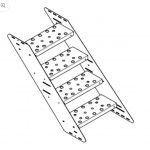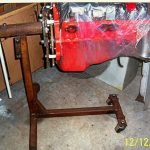(Radio Iowa) – County officials could decide if property owners in their county may continue getting a tax exemption for land with timber or fruit trees on it under a bill in the Iowa Senate.The bill, which changes the state’s forest preserve program, won House approval with just the 51 votes required for passage. Representative Austin Harris, a Republican from Moulton, was the only lawmaker who spoke in favor of the bill.
“This bill is about local control, leaving it up to the counties to decide whether the Forest Reserve program in their county works for them or not,” Harris said. Under current Iowa law landowners who agree to maintain at least 70 fruit trees or at least 200 trees per acre do not pay property taxes on that ground. The Iowa Farm Bureau has long argued the program is unfair to other property owners and in previous years bills called for repealing or reducing the property tax break. This year’s bill gives county boards of supervisors the power to eliminate the tax exemption in their county.
“Leaves it up to our local elected officials that this program impacts and the citizens,” Harris said,” it leaves it up to them to make that decision.” Representative Chuck Isenhart, a Democrat from Dubuque, says the bill gives county officials a green light to raise property taxes on 60-thousand landowners who have enrolled more than 800-thousand acres in the program. “In 1906 the Iowa legislature passed a landowner property tax incentive we now know as the Forest and Fruit Tree Preservation Act to reduce or eliminate property taxes to incentivize landowners to hold their poorer lands in timber for erosion control, watershed protection and game cover,”Isenhart said, “and we have been presented with no evidence that this program is not achieving those goals.”
Isenhart was the only critic of the bill to speak in House debate. If the property tax exemption were eliminated in each of Iowa’s 99 counties, landowners with timber or fruit tree orchards enrolled in the program would owe 12-point-seven million dollars in property taxes next year.
















